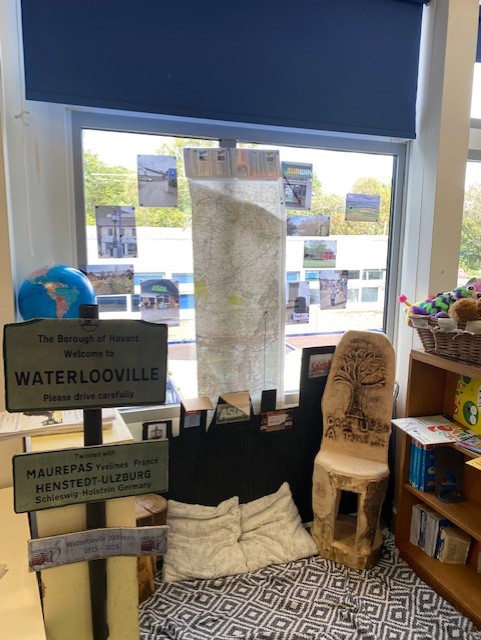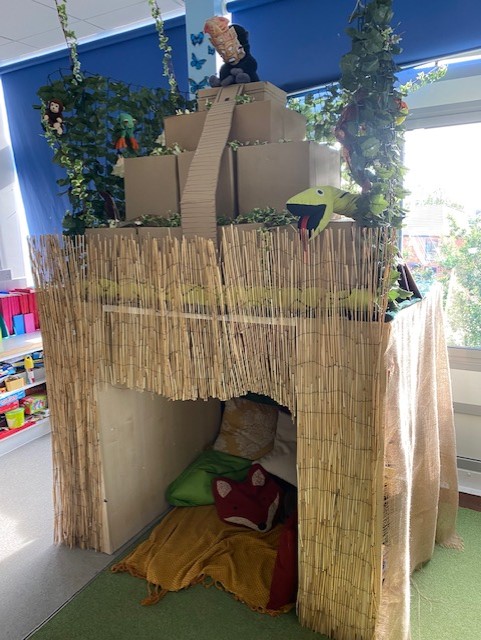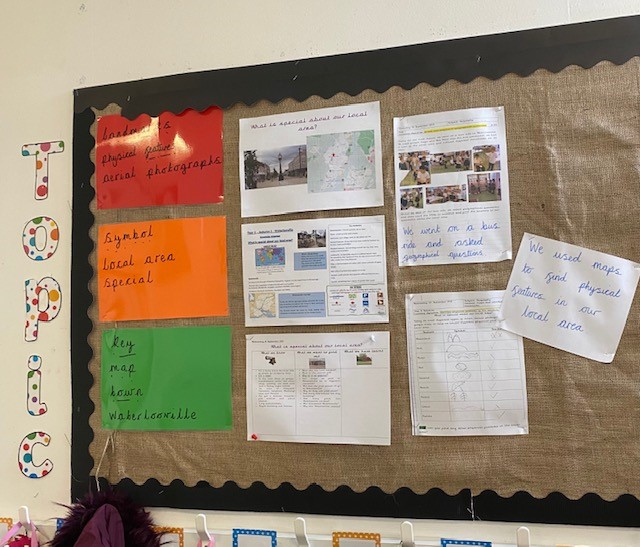Geography
Intent:
At Woodcroft Primary School we use our location to generate interest and curiosity about the world around us through fieldwork in urban, rural and coastal environments, alongside hands-on investigations and experiences. An exploration of key physical and human processes allows children to understand how landscapes are formed and shaped. Children explore similarities, differences and diversity between people and places whilst comparing them to their own locality. They will understand how humans interact with and shape the world around us both on a global, national and local scale, allowing them to make informed choices about their own actions and responsibilities. Alongside developing locational and place knowledge, children will practice geographical skills ensuring context and purpose. Child led discussion means that children deepen their understanding and pursue their own lines of inquiry and interest.
Through high quality teaching, we develop the following essential characteristics of geographers:
- An excellent knowledge of where places are and what they are like, both in Britain and the wider world;
- A comprehensive understanding of the ways in which places are independent and interconnected;
- An extensive base of geographical knowledge and vocabulary;
- The ability to apply questioning skills as well as effective presentation techniques;
- The ability to reach clear conclusions and explain their findings;
- Excellent fieldwork skills as well as other geographical techniques;
- The ability to express well-balanced opinions and an understanding about current issues in society and the environment
- A genuine interest in the subject and a real sense of curiosity about the world and the people who live here.
As Geographers:
We study maps
We investigate places
We listen to different people’s views
We make conclusions and evaluate
We look at how places change over time and why
Implementation:
As part of the planning process, teachers need to plan the following:
- A knowledge organiser which outlines knowledge ( including vocabulary) that children must master and apply in lessons;
- A KWL grid to assess prior knowledge, areas of interest to develop and at the end of the unit an assessment of what they have learnt;
- A vocabulary assessment grid to assess prior knowledge ( through a traffic light system)
- A key question grid to build on in each session in order to answer the overall key question for the unit.
- A cycle of lessons which carefully plans for progression and depth; teaching substantive and disciplinary knowledge to answer a key question.
- Share real examples of real people in real places and how their lives are similar or different to ours.
- Fieldwork that will enhance the learning experiences
- Appropriate curriculum themed home learning tasks.
Impact:
Our Geography curriculum is well planned out to cover the National curriculum and meet the needs and interests of the children in our school. It is well thought out and planned to demonstrate progression. We measure the impact of our curriculum through the following methods:
- A reflection on standards achieved against planned outcomes;
- Pupil discussions about their learning;
- An evaluation of learning through KWL grids, vocabulary development and answering the key question.
- Pupils are able to present their findings in a range of methods to demonstrate their knowledge and understanding
- Pupils are able to talk about real people in real places around the world and compare similarities and differences with their own lives.
- Children are beginning to understand the modern world and their place in it.
Geography Overview 2023 24 Website


